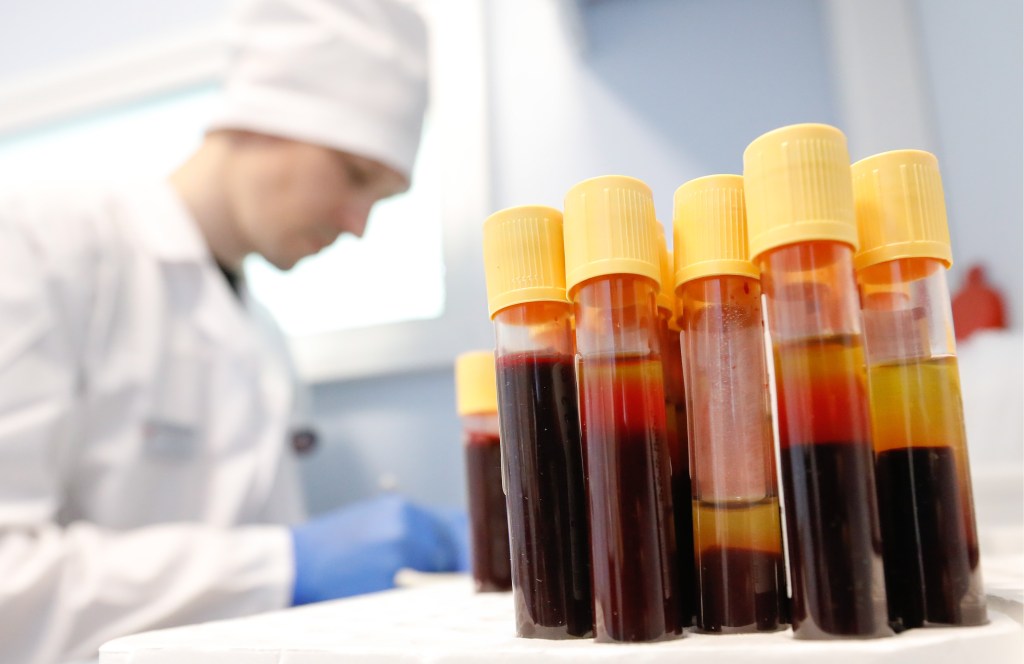Rise in new HIV diagnoses in England puts 2030 zero transmission target ‘at risk’

(Canva)
The achievable goal of ending new transmissions of HIV by 2030 is “at risk” experts say, after new figures revealed the number of new HIV diagnoses in England has increased.
New data from UKHSA published on Tuesday (1 October) shows HIV diagnoses first made in England – so excluding those previously diagnosed abroad – increased by 15 per cent from 2,451 in 2022 to 2,810 in 2023.
Overall – so including diagnoses first made abroad – there were 6,008 HIV diagnoses in England in 2023, a rise of 51 per cent from 2022 when there were 3,975 diagnoses and up 56 per cent from 3,859 in 2019.
The goal to end new transmissions of HIV by 2030 was set by the HIV Commission in 2019, with chair Dame Inga Beale saying at the time it is a “big challenge, but it’s one we can achieve”.
The data also found that following a decline in recent years, the number of new diagnoses amongst men who have sex with men rose by 7 per cent, from 761 in 2022 to 811 in 2023.
Within this, in 2023, men of an ethnic minority group – excluding white ethnic minorities – accounted for 33 per cent of the diagnoses made amongst men who have sex with men (266 of 811). Specifically, this group accounts for accounting for 40 per cent of those living in London who were diagnosed (127 of 321) and 28 per cent (139 of 490) among those living outside of London.
Increases in HIV diagnoses in other groups were also identified, with a rise of 36 per cent (445 in 2022 to 605 in 2023) in men who have sex with women and 30 per cent (602 to 780) among women exposed through sex with men.
Of those who were diagnosed late with HIV, people of a Black ethnicity were overly represented, with a 40 per cent increase from 259 to 362.
Further to this, the data showed that overall testing has increased with testing in sexual health clinics up by 34 per cent since 2019 in gay, bisexual and other men who have sex with men (GBMSM). However, it has fallen 10 per cent in heterosexual men, and 22 per cent in bisexual women.

Commenting on the figures, National AIDS Trust CEO Robbie Currie said the data shows there is a “continuing lack of equity and equality is standing in the way of people being able to live well with HIV” and “puts the goal of ending new cases of HIV in this country at risk, despite the existence of safe and effective HIV medicines and treatments”.
Currie said: “Over recent years, there has been much to celebrate with HIV treatment and prevention. These statistics show the continued high quality of care, with 98% of people living with diagnosed HIV in England now virally suppressed – meaning that they can’t pass the virus on.
“The increase in overall numbers of people accessing PrEP – the drug that prevents people from acquiring HIV – is also hugely welcome. Along with the increasing testing rates seen in the data, the key foundations of being able to end HIV as an epidemic are in place.”
He continued: “However, a step-change in equitable healthcare provision, and tailored interventions that meet the needs of all people and communities, are now crucial to support everyone in England who is living with HIV.
Not only is this right and just, but at a time where ending new cases of HIV is both possible and realistically achievable, it is an imperative. Ethnic minority communities, women, and people in vulnerable situations are too often being left behind in the fight against HIV.
“This leads to rising cases which could be prevented and late diagnoses which result in poorer health outcomes. These matters, alongside tailored and responsive support, must be urgently addressed so everyone can have a good quality of life when living with HIV.”
Currie said the UK government must respond “in full to the worsening disparities and trends that we see in this data, with a strategy, funding and action”, saying those in power must “engage fully with experts in the HIV and sexual health sector, as well as marginalised voices and communities who are most directly affected”, as well as “deliver the new HIV Action Plan by the end of the summer 2025”.
Also in a statement Richard Angell, chief executive of the Terrence Higgins Trust said the data is a “call-to-action” to ensure the country reaches the 2030 goal.
“As Health Secretary Wes Streeting said last week, we’re not on track for the government’s 2030 goal of ending new HIV cases in the UK, but that doesn’t mean it can’t be done,” Angell said.
“Today’s new figures show people from ethnic minorities face an increasing burden of HIV, with rising diagnoses and worse health outcomes than the population as a whole.
“Recent strong progress among gay, bisexual and other men who have sex with men seems to have stalled. And almost across the board, the picture is worse for those living outside of London, where resources are most limited.
“Today’s figures are a call-to-action: we need innovation and new resources to address these health inequalities and reach the 2030 goal. Time is of the essence.”
Share your thoughts! Let us know in the comments below, and remember to keep the conversation respectful.
How did this story make you feel?

